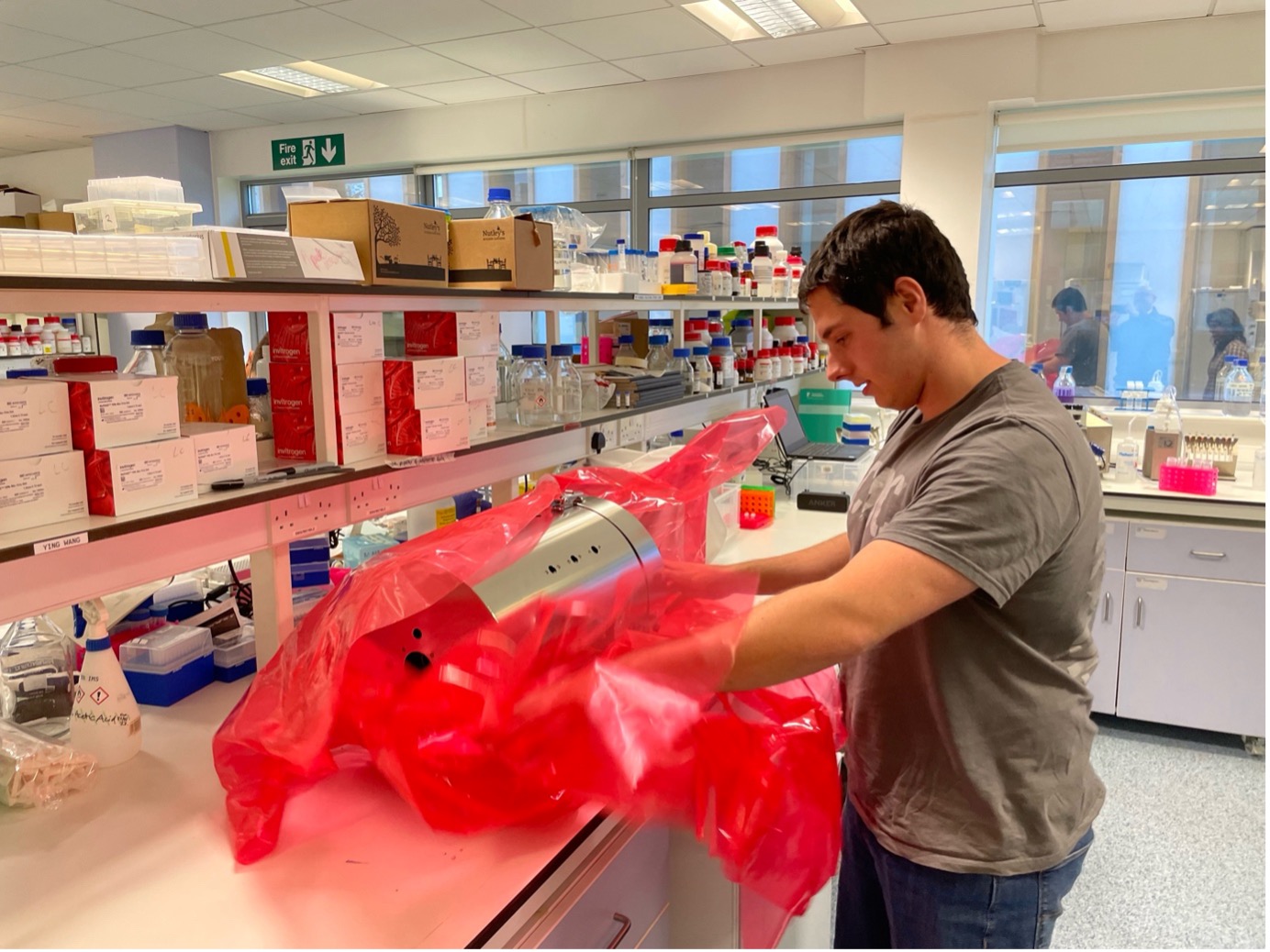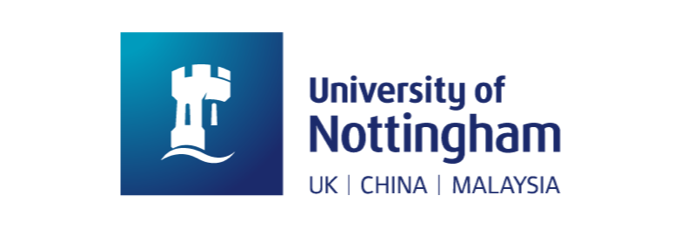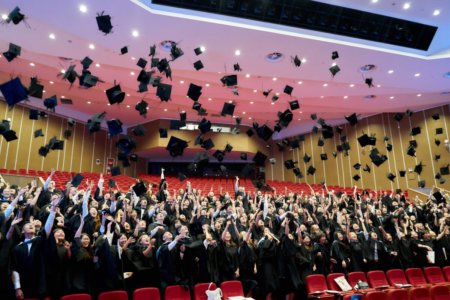Over the last century, quantum mechanics has brought unprecedented progress in our understanding of nature at the microscopic level of atoms and photons. From discovering an ultra-rare particle decay process to developing an MRI-like tool for quantum materials, the field is rapidly moving forward – so much so that the United Nations even declared 2025 to be the International Year of Quantum Science and Technology.
That same year, the University of Nottingham will launch a taught postgraduate programme in quantum technology.
The Quantum Science and Technology MSc is a full-time degree set to begin in September 2025. It focuses on understanding the rules for processing quantum information and how this relates to classical fields such as computing, information theory, statistics, and control. Jointly taught by the School of Physics and Astronomy and the School of Mathematical Sciences, the master’s degree gives a broad introduction to the mathematical principles and practical applications of quantum science and technology, all using a unique blend of interdisciplinary modules covering mathematical, theoretical, and experimental aspects of the subject.
This programme is built from the university’s extensive expertise in translating fundamental research into the development, application, and commercialisation of new technologies in the quantum field. Medical imaging, precision navigation, and natural resource exploration are just some of the research areas that the university has tapped to drive innovation, new products, and spin-out companies in the quantum technology field.
A good example is Cerca Magnetics, which develops and sells quantum brain scanning systems that are transforming neuroscience worldwide. Their discoveries and breakthroughs have taken place in various centres, groups, and institutes dotted around the Russell Group university, like the Midlands Ultracold Atom Research Centre, Sir Peter Mansfield Magnetic Resonance Centre, and the UK Quantum Technology Hub in Sensing, Imaging and Timing – all of which are filled with state-of-the-art equipment and tools.
The new MSc programme has a comprehensive curriculum. Core modules introduce current research topics like the foundations of quantum information and quantum computation, atomic physics and the light-matter interaction, physics of engineered quantum devices, and quantum estimation, sensing, and metrology. To specialise, there are optional modules dive deeper into topics such as Machine Learning, Coding and Cryptography, Scientific Programming, Practical Quantum Computation, and Quantum Field Theory.

The Quantum Science and Technology MSc offers two pathways: Quantum Information, Computation and Metrology or Quantum Devices and Technology. Source: University of Nottingham
Two pathways
“One of the unique features of the master’s is the emphasis on sensing and metrology with dedicated complementing modules on quantum metrology and quantum technology,” says course director Madalin Guta.
The MSc has two pathways. The first is Quantum Information, Computation and Metrology – where you can focus on fundamental physical and mathematical principles of quantum science. In this pathway, you will study quantum metrology with an emphasis on its conceptual issues and theoretical methodology, starting with an introduction to fundamental concepts of statistical inference. Building on this foundation, you will then explore applications of current relevance to quantum technology such as quantum tomography, quantum phase estimation, and the Heisenberg limit. At the end of the module, you will investigate the theory of quantum noisy channels and apply it to the study of realistic metrology models.
The other pathway is Quantum Devices and Technology. It comes with an extended module that lets you apply your knowledge in experimental settings and learn the skills necessary to work successfully in quantum technology laboratories. Here, you will operate quantum technology systems, take precision data and reliable notes, conduct advanced data analysis, and work with experimental setups within a team.

Students of the programme will have a range of academic and industry experts who will talk about current progress made in the field and their experiences. Source: University of Nottingham
Both pathways will end with a self-directed dissertation project which takes inspiration from areas you have covered in the taught modules. You can either choose a topic that is proposed by supervisors from the School of Mathematical Sciences, School of Physics and Astronomy, or the Faculty of Engineering, or suggest an original one yourself.
“An important component of the master’s is your dissertation, which is an opportunity to experience research firsthand,” says course co-director Lucia Hackermuller. “It will provide you with lifelong transferable skills like independent working, communicating effectively, evaluating scientific literature, working in the labs, designing experiment setups, working with quantum systems, building electronics detectors and optical setups, performing precision measurements, and collecting and assessing data.”
Other than learning through taught modules and conducting research, you will also be able to join workshops, attend seminars, and take part in exercise classes in addition to receiving a comprehensive set of online studying materials made exclusively for you. Occasionally, the programme invites a range of academic and industry experts who will talk about current progress made in the field, giving you more industry insight into what to expect in your future career.
Follow the University of Nottingham on Facebook, Instagram, LinkedIn, TikTok, X, and YouTube.













